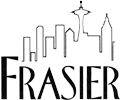BBC Radio 3 has a new web site, although the casual viewer might not notice much of a difference. However, the most important changes are behind the scenes, and both the visible and invisible changes will apparently make finding information about Radio 3’s programmes easier — especially if you can’t remember what you heard several days ago, but now desparately want to find out.
The BBC has excelled at distributing its traditional content digitally, and if you like even a fraction of its output and spend time sitting in front of a computer, then you’re bound to approve of the Beeb’s online initiatives.

A recent page from CBC Radio 3
However, if you want to see what “new media” can really do, you need to tune in to the Canadian Broadcasting Corporation’s Radio 3. But be warned — the only similarlity is the name. CBC Radio 3 is not classical in any sense. It’s not even really radio as we know it. It’s an online, new-media magazine, featuring contemporary photography, photojournalism, interviews, poetry, videos and lots of recordings from Canada’s independent popular music scene, including live concert recordings. [Note – You need a broadband connection to the Internet to really appreciate CBC Radio 3.]
During the current 36-day general election campaign, for example, Radio 3 has been publishing the personal agendas of 36 ordinary (i.e. unknown) Canadians on video. Given that politics is a subject about which few “ordinary” people feel passionate these days (excluding, of course, the notable issue of the Iraq war), it was interesting to see and hear this selection of personal opinions on Canada’s priorities as a nation.
In January The Globe and Mail published an interesting article (see Indie music and beyond) on CBC Radio 3 that included the following quote from its Executive Director, Robert Ouimet:
“The question I get a lot is: ‘Surely you want them to go to the website and then get them to radio. Isn’t that the goal?’ Well, yeah, if they do that, that’s great. But that’s not the imperative. The goal is to introduce them to the stuff that the CBC makes and if they get it on-line and never go to the radio, that’s totally okay.”
The CBC used the web to attract a new, youthful audience that had long ago abandoned the network, and it believes that new media can be an end in itself. It’s not simply a case of using the web to support the rest of the network’s programming. Apart from the music, CBC Radio 3’s output is unavailable anywhere else.
The BBC on the other hand seems to view the web firstly as a temporary archive and then secondly as a source of complementary information in support of its broadcasts. BBC Online is not really intended to be your final destination. Everything it produces is either rooted in a conventional BBC broadcast of some kind, or intended to inform you of one.
To be fair, I don’t think the Internet presented the BBC with as much of an opportunity as it did the CBC. Young people in Britain never abandoned the BBC the way a generation of Canadian kids fled from the CBC. The CBC never had the equivalent of BBC Radios 1, 2, 5 or television programmes such as Top of the Pops, so the Internet provided it with a far greater opportunity to expand the range of its output and the demographics of its audience.
Nevertheless, it would be nice to see both organisations borrowing from each other’s online strategy. Canadians could make good use of an archive, such as that provided by the BBC’s Listen Again service, and the BBC should really commit to the web as an end in itself if wants to continue playing a leading role in the creative life of the UK.


 In honour of Canada Day, here’s a link to a 15-minute discussion on that staple of Canadian food, the butter tart (courtesy of the CBC):
In honour of Canada Day, here’s a link to a 15-minute discussion on that staple of Canadian food, the butter tart (courtesy of the CBC):
 …for the last time unfortunately.
…for the last time unfortunately.